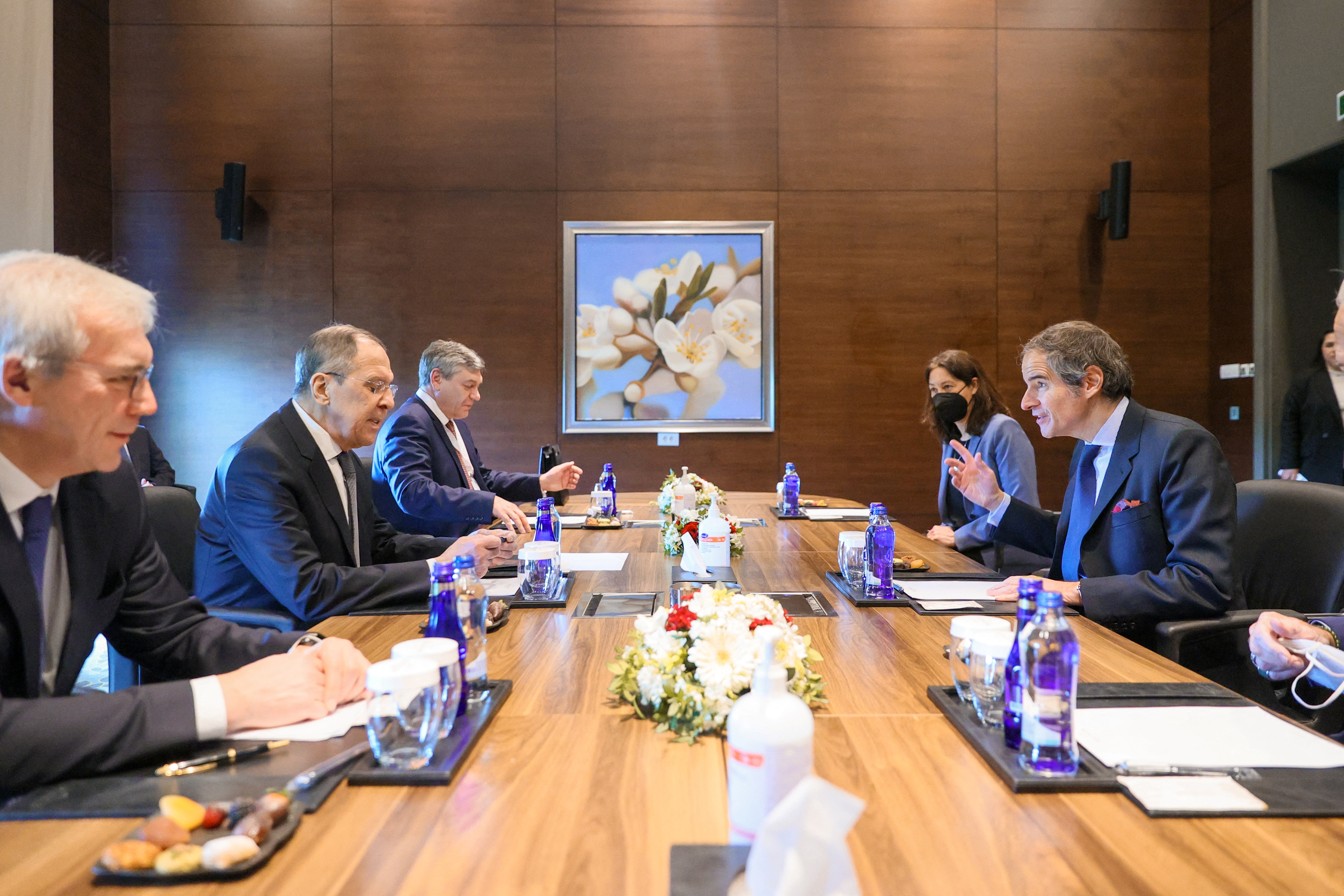
The Director General of the International Atomic Energy Agency (IAEA), Rafael Mariano Grossi, said Wednesday that the world is going through an “extremely serious” situation in relation to the conflict in Ukraine, at a conference organized by the Institute of International Policy and the Institute of Political Sociology of the Academy National Department of Moral and Political Sciences.
“We are seeing before our eyes episodes that affect the basic principles of nuclear safety,” said Grossi at this meeting, which was also attended by Judge Alberto Dalla Via, diplomat Roberto García Moritan, political analyst Rosendo Fraga and economist and former military officer Adalberto Rodríguez Giavarini, among others. other prominent personalities.
The Argentine diplomat warned that, should there be a cooling interruption, “we could theoretically be in a scenario of reactor melting, as happened in Chernobyl (1986) and Fukushima (2011).”
Grossi said that the international scene is going through a “critical moment” and emphasized the importance of his agency in mediating the conflict. In this regard, he said that the IAEA continues to negotiate with Russia and Ukraine on the protection agreement that the Director General himself proposed to them in his meeting with representatives of both countries in Turkey last week.
Grossi's proposal seeks to reach a framework agreement that will guarantee nuclear safety on Ukrainian territory in the midst of the Russian invasion. The head of the nuclear agency stressed that the President of France, Emmanuel Macron, personally called him to express his support for the initiative, which is also endorsed by the G7.

Grossi said that a “major nuclear accident” could have occurred in Ukraine, referring to the fire at the Zaporizhzhia nuclear power plant caused by Russian attacks. It differentiated what happened there with Chernobyl, since in that case the cause was a power cut test. However, he said that an atomic accident cannot be ruled out.
The Argentine believes that the conflict “will not end in a long time” but that it will “leave many scars”. He specified that the “non-proliferation regime may suffer” from this situation and that “maintaining it is an absolute priority”. “Nuclear disarmament becomes even more of a difficult task because of what is happening in Europe and in the Indo-Pacific. There must be a very strong commitment to the non-proliferation regime,” he said.
With regard to Ukraine's request to establish exclusion zones around a nuclear plant, he argued that this is a very difficult point because its mandate and capabilities exceed it. Anyway, he understands Ukraine's desperation for what it is going through and the orders it places. “Who can lose patience with someone who is invaded? We have to have a huge understanding of what they are experiencing,” he said.
Grossi assured that the IAEA has teams ready and ready for any eventuality to provide immediate assistance. “The organism and I are ready. Writing tweets from Vienna is not enough, I am willing to move to Ukraine when necessary. The IAEA must show its usefulness and capacity to come up with a solution in this dramatic moment we are experiencing,” he concluded.
KEEP READING:
Últimas Noticias
Debanhi Escobar: they secured the motel where she was found lifeless in a cistern
Members of the Specialized Prosecutor's Office in Nuevo León secured the Nueva Castilla Motel as part of the investigations into the case

The oldest person in the world died at the age of 119
Kane Tanaka lived in Japan. She was born six months earlier than George Orwell, the same year that the Wright brothers first flew, and Marie Curie became the first woman to win a Nobel Prize

Macabre find in CDMX: they left a body bagged and tied in a taxi
The body was left in the back seats of the car. It was covered with black bags and tied with industrial tape
The eagles of America will face Manchester City in a duel of legends. Here are the details
The top Mexican football champion will play a match with Pep Guardiola's squad in the Lone Star Cup

Why is it good to bring dogs out to know the world when they are puppies
A so-called protection against the spread of diseases threatens the integral development of dogs




